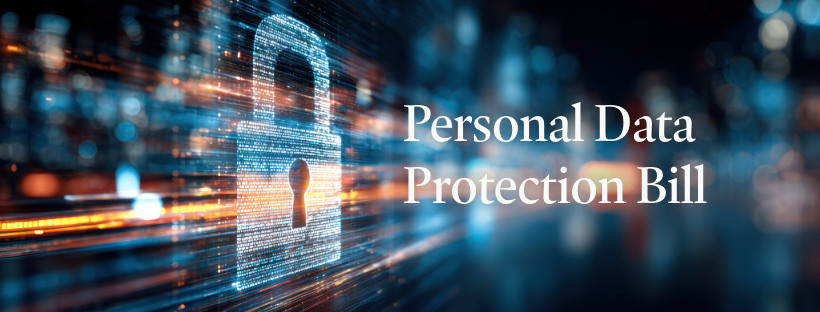India’s New Data Privacy Laws: What Businesses Need to Know and Do Now
Discover essential insights on India’s upcoming data privacy law, the Personal Data Protection Bill. Learn practical steps businesses must take to comply, protect customer data, and avoid penalties in an evolving regulatory landscape.
Vipin Sharma
10/5/20253 min read


India is poised to implement a comprehensive data privacy framework with the anticipated enforcement of the Personal Data Protection Bill (PDPB). This legislation will impose stringent obligations on organizations regarding the collection, processing, storage, and transfer of personal data in India, significantly impacting both domestic and multinational companies.
Key Features of the Personal Data Protection Bill
Consent and Purpose Limitation: Organizations must obtain explicit, informed consent before processing sensitive personal data and must notify data subjects of the purpose of data collection.
Data Localization Requirements: Certain categories of sensitive and critical personal data must be stored and processed within India, which may require organizations to restructure their global data infrastructure.
Data Protection Officer (DPO) Appointment: Entities of a certain size or scope will be required to appoint a DPO responsible for overseeing compliance with the PDPB.
Enhanced Data Subject Rights: Individuals will gain rights to access, correct, erase, and port their personal data. Organizations should prepare to implement mechanisms to fulfill these rights promptly.
Mandatory Breach Notification: In the event of a personal data breach, organizations must notify the data protection authority and affected individuals within prescribed timelines.
Practical Implications for Businesses
Comprehensive Data Mapping: Companies need to conduct thorough audits of data flows, repositories, and processing activities to identify compliance gaps.
Revise Privacy Policies and Contracts: Privacy notices must be updated to clearly disclose processing purposes, including changes to vendor, employee, and customer agreements.
Adopt Privacy by Design: Compliance should be embedded in business processes and technology solutions from inception, minimizing risks proactively.
Invest in Security Controls: Appropriate technical and organizational measures must be implemented to safeguard data and prevent unauthorized access or loss.
Establish Compliance Monitoring: Regular internal audits and reporting structures should be institutionalized to ensure ongoing adherence.
Case Study: Practical Compliance at Innovate Manufacturing Pvt Ltd
To bring these concepts into perspective, consider Innovate Manufacturing Pvt Ltd, a mid-sized industrial equipment maker with operations across India and global customers.
The company began by conducting a detailed data audit, identifying all personal data collected from employees, suppliers, and customers, and mapping its flow across business units.
Privacy policies were then updated, and the company instituted mandatory consent frameworks aligned with PDPB requirements. Staff across finance, HR, and IT received targeted training on data protection principles.
Sensitive customer and employee data was migrated to India-based servers, ensuring compliance with localization mandates.
A Data Protection Officer was appointed to oversee the evolving compliance regime, handle breach response, and liaise with regulators.
Contracts with logistics and IT vendors were revised to include clear data privacy obligations and breach notification clauses.
Innovate also developed an incident response plan and tested its effectiveness through simulated breach exercises.
These practical steps not only aligned Innovate with India’s new data protection law but also enhanced operational efficiency and stakeholder confidence.
Challenges and Strategic Considerations
Balancing International Data Transfers: Organizations must navigate restrictions around transferring data outside India while maintaining operational efficiency.
Cost and Resource Allocation: Achieving compliance requires investment in technology, personnel, and training, particularly for SMEs.
Regulatory Enforcement: The authority tasked with enforcement will have broad investigative and penalty powers, making proactive compliance essential.
Conclusion
India’s data privacy regime represents a transformative shift requiring urgent attention from businesses operating in or with India. Proactive compliance efforts reduce legal risks and build trust with stakeholders in an increasingly privacy-conscious market. Our legal experts are ready to assist in navigating these complex requirements, ensuring your organization meets its obligations under India’s evolving privacy landscape.
Target Audience:
Compliance officers and data protection officers (DPOs) in Indian and multinational companies
Legal counsels and advisors specializing in data privacy and corporate law
IT and cybersecurity professionals responsible for data governance and security
Business executives and operational managers overseeing data-driven functions
GST and tax consultants who advise on regulatory compliance
Startups and SMEs preparing to meet data protection obligations
Vendor and supply chain managers handling third-party data processing arrangements